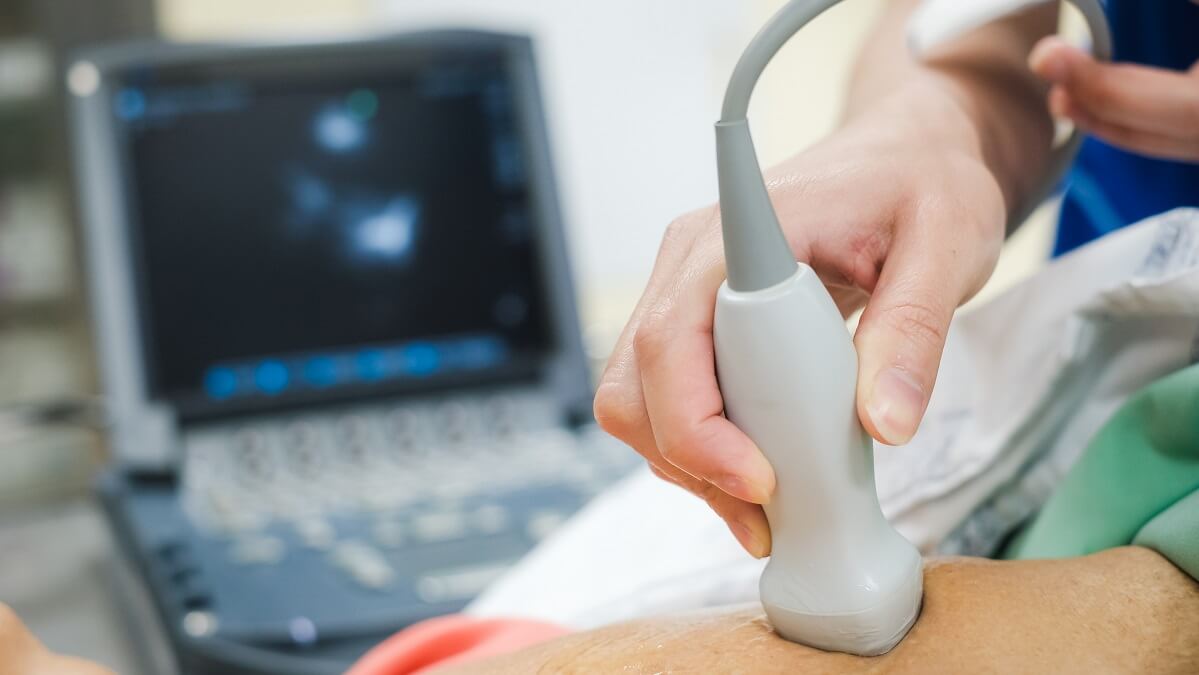A meta-analysis of existing studies reveals a simple ultrasound device can significantly lower your blood pressure, potentially eliminating the need for drugs.
High blood pressure, or hypertension, is one of the leading causes of death worldwide. If left untreated, it can lead to strokes, heart attacks and chronic kidney disease.
According to the Australian Institute of Health and Welfare (AIHW), around one in three Australians (34 per cent) aged 18 and over have high blood pressure. Most are not taking any medication or treating their hypertension in any way.
Besides medication, treatments usually include lifestyle and diet changes, particularly increasing exercise and reducing sodium intake.
But now, a study of previous clinical trials involving 506 patients suffering varying levels of hypertension, has demonstrated that a simple ultrasound technique can lower blood pressure by acting on nerves in the kidney.
Overactive nerves in the kidney are a common risk factor for hypertension in middle age. A kidney that’s working extra hard can trigger water and salt retention and release hormones that increase blood pressure.
Blood pressure measurements are expressed as ‘millimeters of mercury’, or mmHG, and are usually shown with one number on top of the other or one beside another, e.g. 110/70 mmGH.
The first number represents ‘systolic’ blood pressure, or the pressure your heart exerts when it is pumping blood. The second number is ‘diastolic’ blood pressure, or the pressure your heart experiences in between heartbeats.
The research team found therapeutic ultrasound treatment correlated with the patient’s blood pressure lowering it by 5 to 10mmHG.
You’re generally considered to be experiencing stage 1 hypertension when your blood pressure reading is at 130-139/80-89mmHG. Readings higher than that are classed as stage 2 hypertension.
The ultrasound device is used to insert a thin catheter in the patient’s leg or wrist veins and is then threaded into the kidney.
The kidneys are then treated with ultra-high-frequency sound waves that produce tiny amounts of scar tissue in the kidneys, which in turn inhibits kidney nerve activity. This process of nerve inhibition is called ‘ablation’.
Dr Ajay J. Kirtaine, lead author of the study, says the procedure can be done without an overnight hospital stay.
“We anticipate it being an outpatient procedure similar to a cardiac catheterisation procedure,” he told Medical News Today.
“The ablation portion for ultrasound-renal denervation [kidney ultrasound treatment] is less than one minute, and the overall procedure is less than an hour, with conscious sedation/local anesthesia.”
The researchers followed the participants for an additional two months after the procedure and found their hypertension did not return.
“It appears to be durable with follow-up out to three years,” Dr Kirtaine says.
Do you suffer from hypertension? What treatments have you been prescribed? Let us know in the comments section today.
Also read: Coffee doubles mortality risk for those with hypertension


I have hypertension and it is anything from 130 to 205. Had and ecg but there is nothing wrong with the heart, all good. I am not on any medication so be interesting to see what is causing this. I do not like taking medication and don’t just want medication without knowing what is going on. Sometimes it is just a bandaid and not the fix.
40 years ago I was found to have high blood pressure. As there were no other family members with it I was sent for a kidney test for this. Nothing new here folks!
Hey Brad – you have misspelled “millimetres” in this story.
I was a member of the Clinical Trial for this discontinued trial! My results were the best BUT the effect only lasted 5 years! The Trial was conducted through Epworth Hospital! Raised a lot of hopes but overall was a Failure! I am living proof!
Robert Bradshaw
Brad – you haven’t fixed the spelling error.